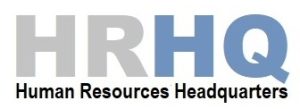Employees who work in EU member states are protected by legislation known as the Brussels Regulation. This allows an employee to sue their employer either in the country where it is domiciled or in the country where the employee habitually carries out his or her work. These rules of jurisdiction are designed to allow an employee to use the court that serves their best interests, as they are the weaker party in the contract.
The Court of Justice of the European Union (ECJ) has clarified the rules relating to where employees are able to bring employment claims, when they perform their work in more than one jurisdiction.
In recent cases against Crewlink and Ryanair, a group of cabin crew staff brought employment claims in Belgium. One claimant was employed directly by Ryanair and the others were employed by Crewlink and assigned to work for Ryanair. Both Ryanair and Crewlink are Irish companies.
The jurisdiction clause in the relevant employment contracts nominated the courts of Ireland to hear any claims. However, Charleroi airport was nominated as the employees’ “home base”; a construct which is used to determine which social security legislation applies to flight crews. The home base is decided by the airline operator and specifies where the crew member normally starts and ends a duty period. It is the place in which the operator is not normally responsible for the accommodation of the crew member. In this case, each of the employees was required to live no more than an hour from Charleroi Airport.
The Belgian Labour Court held that it did not have jurisdiction to hear the claims. On appeal, the case was referred to the ECJ to determine the question of “where the employee habitually carries out his work”.
The ECJ concluded that the jurisdiction clause in the employment contracts, which nominated the courts of Ireland to hear any claims, was not enforceable. In accordance with the Brussels Regulation, the employees were entitled to bring claims in the “place where they habitually carry out their work”.
The employers contended that the Irish courts should have jurisdiction as the employees performed their duties on board aircraft registered in Ireland, were subject to Irish law whilst working and the contract was concluded with Ryanair affixing its signature at its Irish head office.
The ECJ considered that an employee’s habitual place of work equates to the location where “the employee in fact performs the essential part of his duties”. This will vary from case to case and whilst the “home base” is not definitive when deciding where the employee habitually carries out their work, it is likely to be a significant factor to be considered.










